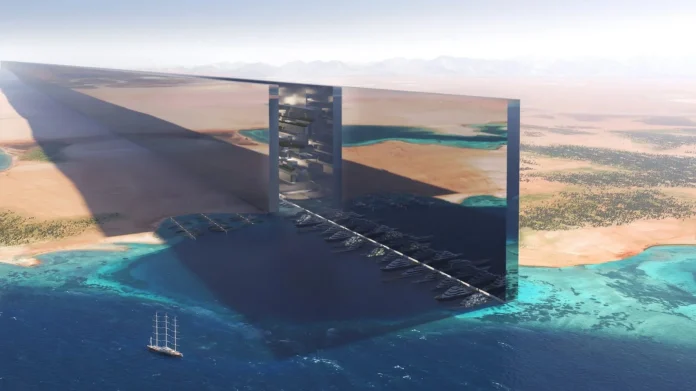Saudi Arabia’s NEOM project, a futuristic megacity spanning across Saudi Arabia, Jordan, and Egypt, has been hailed as a visionary endeavour aiming to diversify the kingdom’s economy and drive sustainable development. However, like any ambitious undertaking, it is not immune to potential pitfalls and challenges. In this blog post, we will delve into some of the possible mistakes in the NEOM project, while also exploring its advantages and disadvantages.
Advantages of NEOM Project:
- Economic Diversification:
One of the primary goals of the NEOM project is to reduce Saudi Arabia’s reliance on oil revenue by diversifying its economy. By focusing on sectors such as technology, tourism, renewable energy, and biotechnology, NEOM aims to attract foreign investment and create new job opportunities, thus strengthening the kingdom’s economic resilience. - Innovation and Technology Hub:
NEOM envisions itself as a global hub for innovation and technology, with plans to leverage cutting-edge technologies such as artificial intelligence, robotics, and renewable energy. By fostering a conducive environment for research and development, NEOM aims to attract top talent and companies from around the world, positioning itself as a leader in technological advancement. - Sustainable Development:
Environmental sustainability is a core principle of the NEOM project, with a focus on preserving natural resources and minimizing carbon emissions. The city plans to utilize renewable energy sources such as solar and wind power, implement green building practices, and adopt eco-friendly transportation solutions, contributing to global efforts to combat climate change.
Disadvantages of NEOM Project:
- Environmental Concerns:
Despite its commitment to sustainability, the NEOM project has faced criticism over potential environmental impacts. The construction of mega-infrastructure projects and urban development in ecologically sensitive areas could lead to habitat destruction, loss of biodiversity, and disruption of local ecosystems, raising concerns among environmentalists and conservationists. - Socioeconomic Inequality:
While NEOM promises economic prosperity and job opportunities, there are concerns about potential socioeconomic inequality within the city. The influx of foreign investors and skilled professionals may exacerbate existing disparities between the local population and expatriate workers, leading to social tensions and unequal distribution of wealth and resources. - Geopolitical Challenges:
NEOM’s location near the Red Sea and its proximity to geopolitical hotspots pose security challenges and geopolitical risks. The project’s success relies heavily on regional stability and cooperation with neighboring countries, which may be affected by political tensions, conflicts, or security threats in the Middle East.
Potential Mistakes in NEOM Project:
- Overambitious Timelines:
One of the potential mistakes in the NEOM project could be setting overly ambitious timelines for development and implementation. Rushing the construction and launch of the city without adequate planning and infrastructure could lead to quality issues, cost overruns, and delays, undermining the project’s long-term success. - Lack of Stakeholder Engagement:
Effective stakeholder engagement is crucial for the success of large-scale development projects like NEOM. Failure to consult and involve local communities, indigenous groups, and other stakeholders in the decision-making process could result in resistance, opposition, and conflicts, hindering the project’s progress and legitimacy. - Economic Viability:
Ensuring the economic viability and sustainability of NEOM is essential for its long-term success. The project’s heavy reliance on foreign investment, global markets, and volatile industries such as technology and tourism poses financial risks and uncertainties, especially in the face of economic downturns or geopolitical instability.
Saudi Arabia’s NEOM project holds immense potential to transform the kingdom’s economy, drive innovation, and promote sustainable development. However, it is not without its challenges and potential mistakes. By addressing environmental concerns, socioeconomic issues, geopolitical risks, and ensuring effective planning and stakeholder engagement, NEOM can strive towards achieving its vision of a prosperous and sustainable future.























